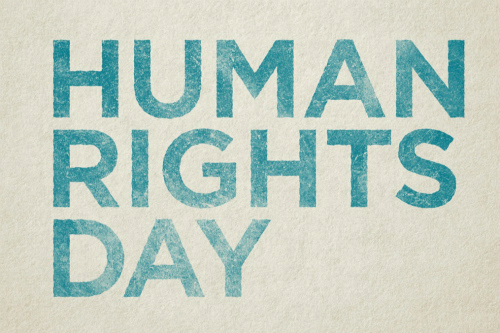
Message from Ms. Audrey Azoulay, Director-General of UNESCO, on the Occasion of Human Rights Day文章源自英文巴士-https://www.en84.com/8427.html
教科文组织总干事奥德蕾·阿祖莱人权日致辞文章源自英文巴士-https://www.en84.com/8427.html
文章源自英文巴士-https://www.en84.com/8427.html
10 December 2019文章源自英文巴士-https://www.en84.com/8427.html
2019年12月10日文章源自英文巴士-https://www.en84.com/8427.html
文章源自英文巴士-https://www.en84.com/8427.html
The Universal Declaration of Human Rights was adopted in 1948. However, seventyone years later, human rights are still an all-too-distant ideal for much of humanity. Rising intolerance, fanaticism and violence are fault lines that run through our societies, threatening peaceful and sustainable coexistence.文章源自英文巴士-https://www.en84.com/8427.html
文章源自英文巴士-https://www.en84.com/8427.html
《世界人权宣言》是1948年通过的。然而,七十一年后的今天,人权对许多人来说仍然是一个遥不可及的理想。不断上升的不宽容、狂热和暴力现象,从方方面面撕裂着我们的社会,威胁到和平与可持续的共存共处。文章源自英文巴士-https://www.en84.com/8427.html
文章源自英文巴士-https://www.en84.com/8427.html
When human rights are put at risk, so are the futures of young people. For this reason, young people are speaking up and calling for change. They want a world in which they can write their own story, instead of having it written for them. But to do so, they must overcome structural and institutional barriers, as well as a lack of spaces for participation.
当人权受到威胁时,青年人的未来也同样受到威胁。正因为如此,青年人纷纷站出来,为变革呐喊。他们想要的世界,是一个可以自己书写自己的故事、而不是由别人为他们书写故事的世界。但要做到这一点,必须克服结构性和制度性障碍,并且解决缺乏参与空间问题。
The theme of this year’s Human Rights Day is “youth standing up for human rights” – because if we want to build a sustainable world, we need to include young people.
今年人权日的主题是“青年为人权挺身而出”。选择这一主题,是因为如果我们想要建立一个可持续的世界,就需要让青年人参与进来。
Working with and for young people is one of UNESCO’s top priorities. The vision of youth as key partners and actors for development and peace lies at the core of the UNESCO Operational Strategy on Youth (2014-2021), which covers all areas of work of the Organization. In partnership with solid youth networks, UNESCO supports youth-led initiatives that drive social innovation and change, promote the concept of global citizenship, and prevent violent extremism.
与青年合作并为青年工作,是教科文组织的首要优先事项之一。青年作为发展与和平的主要合作伙伴和行动者这一愿景,是教科文组织青年业务战略(2014–2021年)的核心所在,该战略覆盖了本组织的所有工作领域。教科文组织与坚实牢固的青年网络合作,支持由青年领导的旨在推动社会创新和变革、倡导全球公民意识观念以及防止暴力极端主义的倡议行动。
In defending human rights, education is essential. Since 1953, UNESCO has mobilized schools, encouraging them to join forces and share knowledge and experience. Today, the UNESCO Associated Schools Network brings together more than 11,500 institutions in 182 countries, focusing on two priorities for education in tomorrow’s world: global citizenship education, which helps shape awareness of a universal identity, and education for sustainable development.
教育在捍卫人权方面至关重要。自1953年以来,教科文组织动员各级学校,鼓励它们联合起来,分享知识和经验。今天,教科文组织联系学校网络汇集了182个国家的11,500多个机构,重点开展未来世界教育的两个优先事项工作,即有助于形成普遍认同意识的全球公民意识教育以及可持续发展教育。
Tomorrow, young people will take control of our societies and our planet. Tomorrow, they will take up the task of building a fairer and more sustainable world. However, in focusing on the future of these youth, we must not forget that they are entitled to inherit a world in which they can live – live well, and live decently. This is our duty – the duty we have as adults today. As Malala Yousafzai said, “Adults must understand that when young people speak up, they are thinking of their future.”
有朝一日,我们的社会和我们的星球将由现在的青年掌握。有朝一日,青年将承担起建设一个更为公平、更加可持续的世界的任务。然而,在关注这些青年人的未来的同时,我们也不应忘记,他们有权继承一个他们可以生活的世界,可以好好地生活并且体面地生活的世界。而这正是我们的责任所在,是今天作为成年人的我们的责任所在。正如马拉拉·优素福扎伊所说,“成年人必须明白,当青年人站出来说话时,他们心中想到的是自己的未来。”

